Director: Sin Dong-yeop
Writer: Min Kyeong-geun
Cast: Lee Joo-Seung, Oh Ji-Ho, Lee Jung-Jin, in Jung-Keun, Eun-Seo, Joo Suk-Tae, Kang Shin-Chul, Im Chang-Jung, Ahn Sol-Bin, Lee Se-rang, Cherrish Ramirez
Running Time: 97 min.
By Paul Bramhall
There can be no denying that the classic kung fu movie trope of a martial arts master challenging fellow martial artists has been around for a long time. In the 70’s there was the black caped Kwan Fung in Five Superfighters, in the 80’s it was Frankie Chan in The Prodigal Son, and in the 90’s we had a masked Darren Shahlavi in Blood Moon. It’s a trope still being employed in the 21st century, from Yayan Ruhian’s Mad Dog character in The Raid, to Wang Bao Qiang’s psychopath in Kung Fu Jungle. Adding to the list of villains who get their kicks from proving their martial arts mastery is Oh Ji-ho, in Korea’s latest entry into the martial arts genre, Showdown.
What could best be defined as ‘pure’ martial arts movies are few and far between in Korea’s modern film industry. Sure, their gangster dramas and revenge thrillers usually have healthy doses of brawling and violence, but it’s rare in the countries post-2010 output to try and sell a move based purely on it being a fight flick. Movies made by the old-school members of the Korean action scene, such as Park Sang-hyeon’s Kwon Bob: Chinatown (which had the added benefit of starring super kicker Won Jin) and Cha Ryon’s The Final Fight, receive little to no attention and even lack a legitimate release.
To some degree Showdown seems to have navigated this issue by having Sin Dong-yeop in the director’s chair. By no means an A-list talent, he has established a reliable reputation as a journeyman director, and has shown a leaning towards action before with such productions as 2010’s Super Monkey Returns (a modern day comedic re-telling of Journey to the West), and 2013’s thriller Days of Wrath. Proving to be dependable with a mid-budget production, Dong-yeop has gathered together a cast which, for the most part, sees TV drama actors and supporting players from bigger budgeted productions take center stage.
The forever baby faced Lee Joo-seung plays an unemployed sibling to his older detective brother, both of whom have a penchant for getting into fights. The brother, played by Lee Jung-jin (the lead from Ki Ki-duk’s Pieta), is on the tail of Oh Ji-ho, a rich game designer who hides psychopathic tendencies. These tendencies manifest themselves in his desire to fight to the death with worthy opponents he finds online, usually in the form of illegal foreign workers. When Jung-jin and Ji-ho finally confront each other, the brother is no match for the others fighting skill, and finds himself beaten into a coma. Joo-seung has an inkling as to who’s behind his brother’s injuries, however his brash approach to seeking revenge quickly finds him arrested and given a community service order, which takes the form of visiting an elderly drunk that lives by himself. Thankfully for him though, the elderly man just happens to be the modern day incarnation of Sam Seed!
Indeed, Showdown could best be described as a completely poker faced modern day retelling of Drunken Master, with elements of Blood Moon thrown in for good measure. Ji-ho’s psychopathic game designer hides behind his suave exterior, however is most in his element when he dons his metallic mask, just like Darren Shahlavi did 20 years earlier. In what’s clearly a nod to the influence of Gareth Evan’s The Raid and its sequel, one of the fights we see Ji-ho involved in takes place in an abandoned empty pool against an illegal Indonesian worker. While the choreography is of course nowhere near the level of the Iko Uwais and co., the long haired fighter will likely remind many of Yayan Ruhian’s appearance in what have become modern classics of the genre.
Showdown is not without its moments of comedy though, and almost all come from Joo-seung’s time spent with the old master, effectively played by a permanently flushed Sin Jeong-geun, who most recently can be seen in supporting roles in the likes of Tunnel and A Hard Day. Jeong-geun pulls off a modern day take on the Sam Seed role perfectly, never seen without a bottle of soju or makkoli close by, and even gets a chance to show off some drunken kung fu against a gang of youths who team up on Joo-seung. In one of the movies funniest scenes, Jeong-geun applies acupuncture to an injured Joo-seung, however can’t remember the correct areas to apply the needles, resulting in him needing to consult a manual that he himself wrote many moons ago.
The old-school training techniques are also successfully transplanted to a modern day setting, from cracking walnuts bare handed, painful looking stances involving the splits, and of course, the obligatory post-Ip Man Wing Chun dummy training. But before Joo-seung can get to any of that, he first of all needs to strengthen his ability to handle drink. In many of the first training scenes that are teased, he’s ordered to down a bottle of whichever is the closest liquor to hand, however whenever Jeong-geun returns to start the training, he finds Joo-seung in an unconscious heap on the floor. These light comedic touches are a welcome addition to Showdown, and reflect Dong-yeop’s playful approach to the story being told. While proceedings never become tongue in cheek, it can also be felt that everyone involved knew that this wasn’t a tale to be taken too seriously.
So how does a master of the drunken arts get the attention of a psychopathic kung fu killer in the modern world of social media and tending videos? The answer comes in the form of Joo-seung strapping a GoPro camera onto his head, and visiting various martial arts school to challenge the masters to a duel. Once the duel is over, upload it onto the net and watch the hits go crazy, which of course is the perfect way to pique the interest of Ji-ho. The use of the GoPro, while definitely a novelty, is a unique update to one of the techniques found in many an old-school kung fu movie, in which the hero or villain strikes at the camera, representing the point of view of their opponent. While the old-school technique restricts the action to the one doing the attacking, with the recipient seemingly taking the blows with no comebacks, the GoPro allows for an interactive POV of the one on the attack, giving the viewer a first person perspective of drunken kung fu in action.
Fittingly, while most of the old-school movies involving drunken kung fu see the hero enter the finale armed with a bottle of Chinese wine, in Showdown Joo-seung eventually confronts Ji-ho in a private bar area of a nightclub he’s drinking in. The fight is a surprisingly successful combination of Korea’s typical leanings toward realistically bloody violence, and the traditional drunken kung fu moves one would expect from such a confrontation. At its most frantic, Ji-ho counters Joo-seung’s attacks by smashing his head through a whole shelf of glass liquor bottles, leaving him a bloodied whisky guzzling mess on the floor. The brutality of Ji-ho’s attacks add a welcome sense of immediacy to the fight, meaning that Joo-seung’s counters don’t just need to be effective, they have to be if he’s going to remain breathing at the end of it.
While purists will likely gripe at the occasional use of choppy editing during the fight scenes, it can easily be forgiven since the effort of everyone involved is so clearly on show. Sure enough while the end credits play, we also get to enjoy plenty of behind the scenes footage of the fight scene rehearsals, and the pain that’s an obligatory part of being involved in a martial arts movie. Transplanting the Drunken Master style setup of master and student to the modern world will no doubt be taken as a parody by many, so the fact that Showdown attempts to pull it off so sincerely is something to be admired. Considering how well it’s done is simply the icing on the cake. While it’s unlikely that either Dong-yeop or any of the cast will remain within the martial arts genre when they next appear onscreen, their commitment to delivering a worthy nod to the old-school classics makes for a refreshing slice of cinema, and for that alone it comes recommended.
Paul Bramhall’s Rating: 7/10


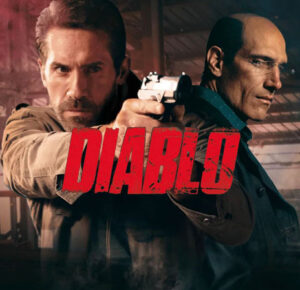
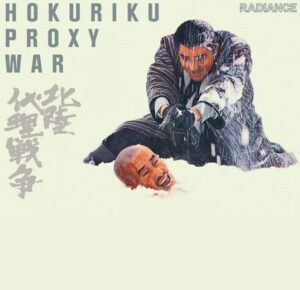



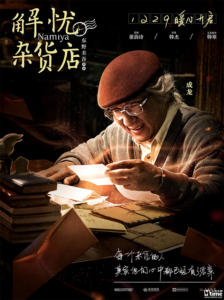
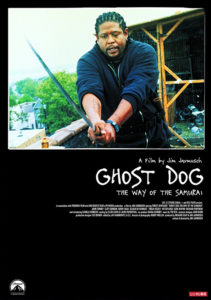

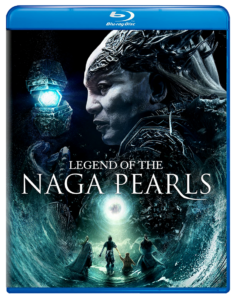
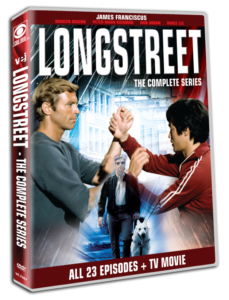

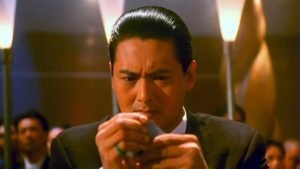
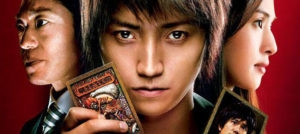
 With the recent release of the Charlize Theron starring
With the recent release of the Charlize Theron starring 
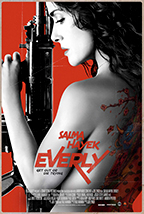
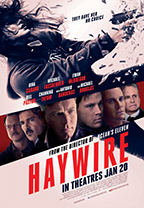
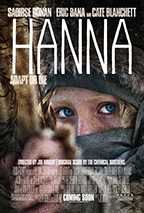
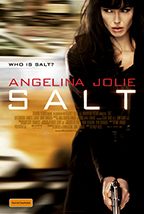

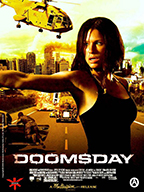


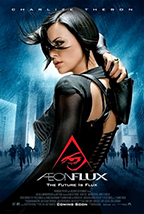
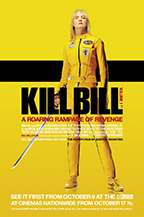
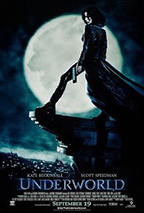


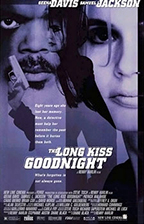
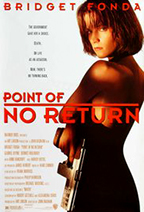


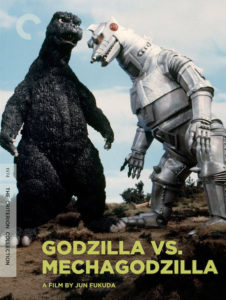
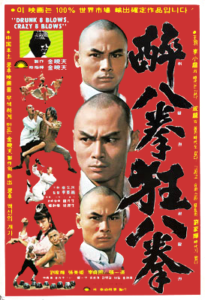
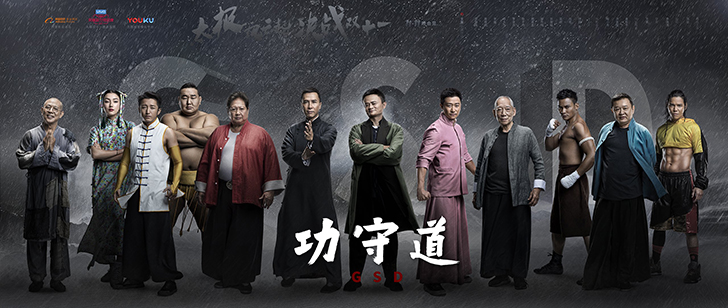





7 Comments